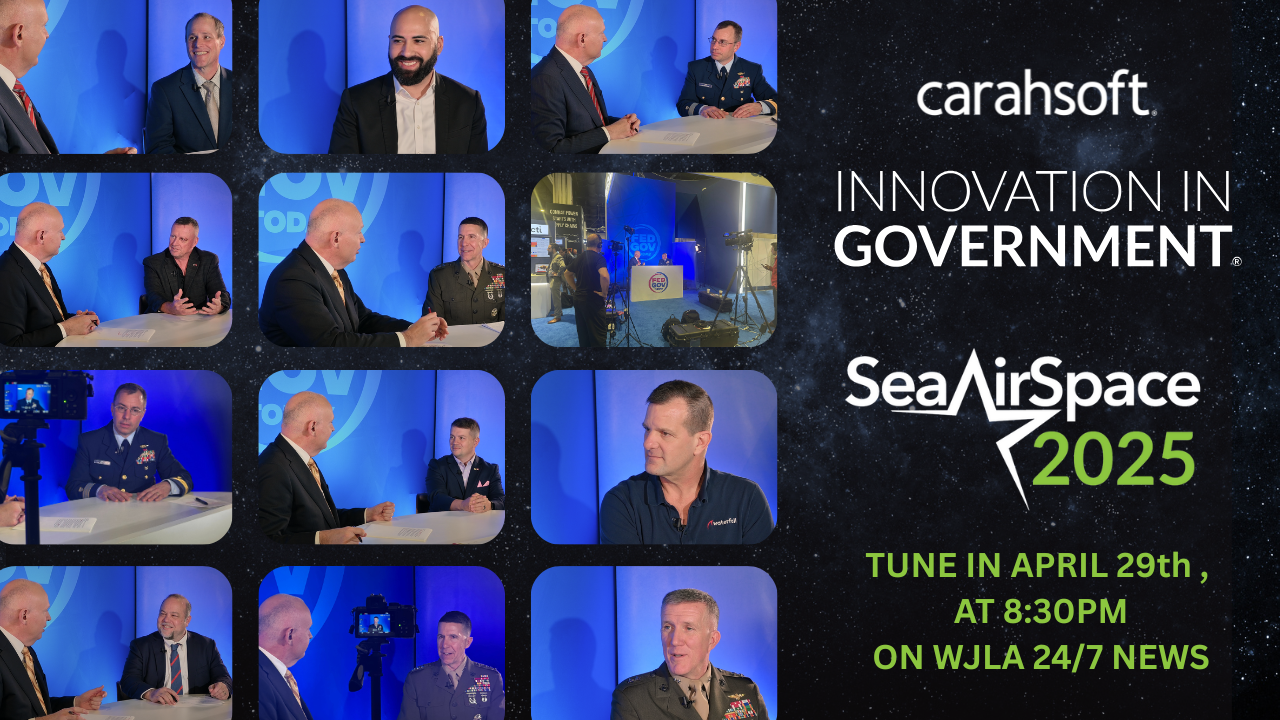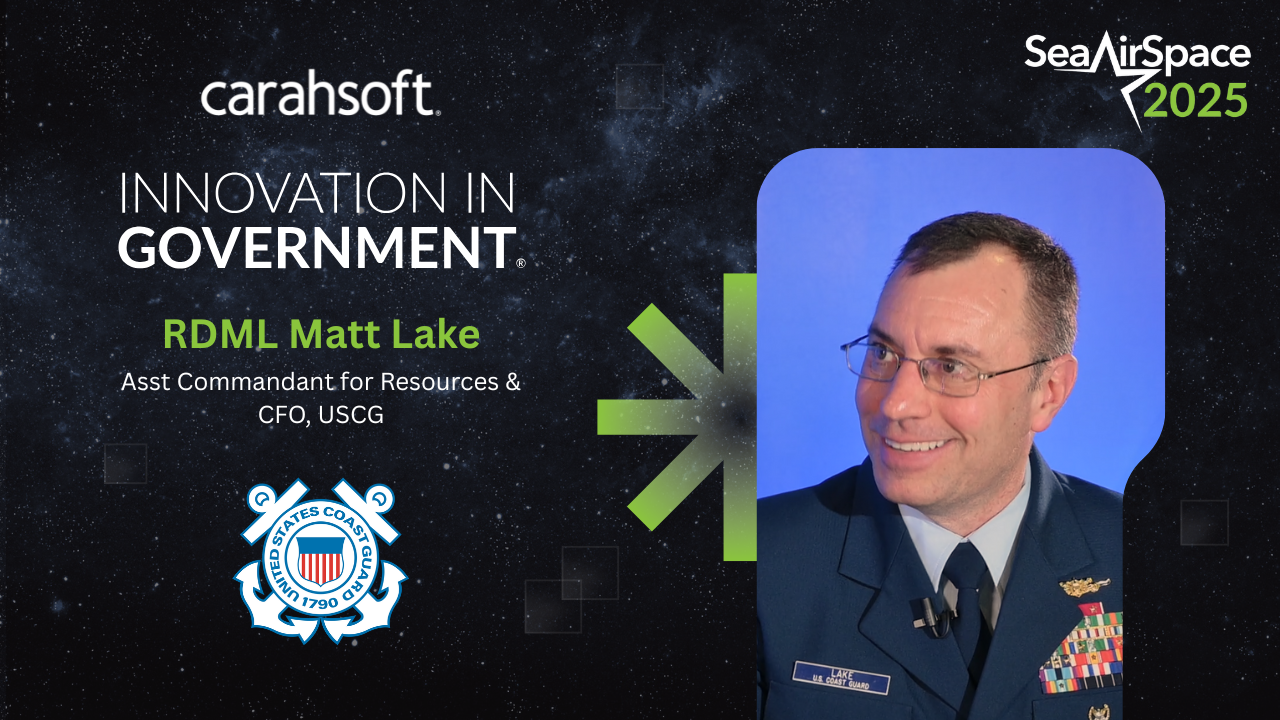Original Broadcast on Innovation in Government on 4/29/25
Presented by Carahsoft
Lieutenant General Benjamin Watson, Commanding General, Training and Education Command at USMC is on a mission to future-proof the U.S. Marine Corps’ training infrastructure. As the Commander of Training and Education Command, he is spearheading three transformational initiatives—Projects Tripoli, Trident, and Triumph—that redefine how Marines prepare for modern warfare.
At the heart of this effort is Project Tripoli, a Live, Virtual, Constructive (LVC) training ecosystem. Watson explained that the Marine Corps’ current range and training infrastructure simply cannot accommodate the full scope of modern capabilities, especially emerging non-kinetic tools like cyber and electromagnetic warfare. “We’re never going to have enough space to practice everything live,” Watson said. “Tripoli allows us to train as we fight—at scale and with fidelity.”
 This virtual expansion isn’t just about technology—it’s about culture. For a service that prides itself on live fire excellence, shifting to synthetic training environments required a mindset change. But the benefits are clear: access to high-demand, low-density platforms, and the ability to integrate thinking adversaries into complex training scenarios.
This virtual expansion isn’t just about technology—it’s about culture. For a service that prides itself on live fire excellence, shifting to synthetic training environments required a mindset change. But the benefits are clear: access to high-demand, low-density platforms, and the ability to integrate thinking adversaries into complex training scenarios.
Watson is also a driving force behind Project Trident, a renewed push for naval integration. While the Navy and Marine Corps have long been partners in concept, Trident aims to operationalize that relationship. Under a new directive from the CNO and the Marine Corps Commandant, responsibility for developing maritime fires professionals now sits with Pacific Fleet and Marine Forces Pacific. Watson’s team is focused on aligning education, doctrine, and tactics to build these specialists across both services.
In tandem with these efforts, Project Triumph introduces outcome-based learning across Marine Corps educational institutions. No longer bound to rigid “one pace fits all” instruction, Triumph personalizes education, incorporates advanced tools like wargaming and AI assistants, and trains instructors to guide rather than lecture. “It’s not the sage on the stage anymore,” Watson said. “It’s the guide on the side.”
Watson’s approach is strategic, systemic, and urgent. By investing in these training transformations now, he is ensuring that the next generation of Marines is ready to fight—and win—wherever the battlefield leads.
Key Takeaways:
-
LVC environments are essential to preparing Marines for modern, multidomain operations.
-
Project Trident advances integration of Navy and Marine Corps maritime fires doctrine.
-
Project Triumph uses AI and modern instructional methods to tailor learning experiences.



